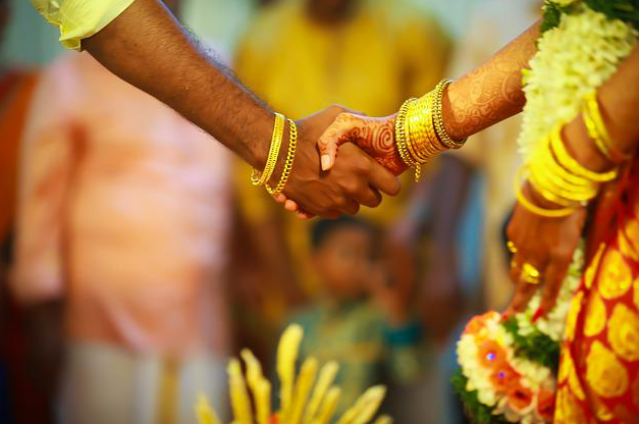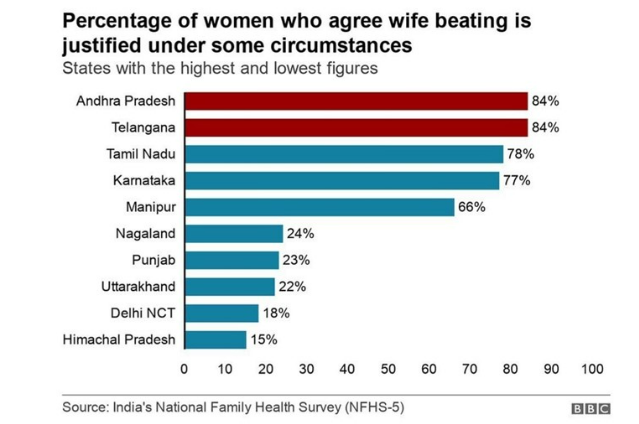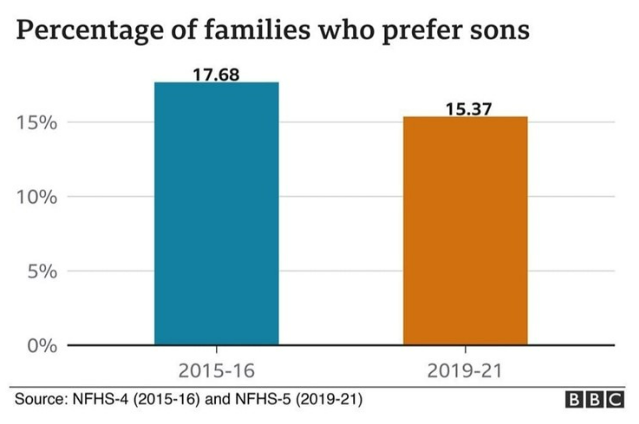
Marriage is the most important component in the life of each human being. It establishes rights and regulations between spouses and determines The tone of their rest of life. According to several reports and empirical studies, the healthy conditions of married couples are much better than that of those of unmarried. Marriage improves physical and mental well-being. A recent study of 25,000 people in England found that among people having a heart attack, those who were married were 14% more likely to survive and they were able to leave the hospital two days sooner than single people having a heart attack. Marriage makes men and women socially protected. It keeps women distant from maternal morbidity and mortality.
However, A set of different marriage systems exist in our society. Apart from heterosexual, homosexuality and self-marriage are also being taken place. Each type of this relationship does not result in the same way.
Women are facing a lot of hurdles following their marriage. They are often forced to marry someone even before they have completed their menarche. It leads to several difficulties in their life. Women are often obliged to drop their education incomplete to stand as a servant to their husbands. A better career which will they have is spoiled by such kind of male-dominated patriarchal thoughts. Beyond this, They are getting domestically violated. It forms various types of physical, sexual and psychological assault.
In respect to solutions to these matters, some associations with feminist taste have come forth demanding absolute freedom for women. Various steps are taken by different governments to ensure the empowerment of women such as Sukanya Samriddhi Yojana, Support to Training and Employment Programme for Women (STEP), and Mahila Shakti Kendra. Recently, the central government has proposed legislation which aims at increasing women's marriage age to 21 from 18. The low is acceptable in the view of the development of education and opportunities. However, all these measurements and steps are seen as insufficient to fill the gap in their marital life.

Sologamy:
A 24-year-old sociologist and blogger, Kshama Bindhu got hitched on June 11 in a temple in Vadodara, the western state of Gujarat. Various rituals and celebrations occurred as a part of marriage. She will be travelling to goa for her honeymoon. The only missing component in this wedding was the “groom”. Marrying herself she opined that she dedicates her life to self-love.
Sologamy, the self-marriage system can be traced back to Linda Baker, a dental hygienist in Lose Angeles, who married herself in 1993.
Alexandra Gill, the founder of Marry yourself Vancouver ( A consulting group for self-marriage), told CBC News, " Today, for the first time women can afford to live their own, build their careers, buy their own house and choose children as much they want". Does it make any sense that self-marriage is a solution to the challenges They are posing today? Can women have the life prescribed by Alexander Gill if self-married? How can a woman live forever without a partner?
Having a lifelong companionship will help her get away from the hurdles of life she lives in. It is not wise for each man and woman to carry a solo life for their entire life. It can not only accomplish sexual desires but Also various advantages could be seen in the marital life of women. Marriage has a vital role in her life being socially protected. Then if the marriage is without a groom, how it will work? Sologamy is just defiance of male dominance rather than a specimen for securing a protected and secured life.
Violence against women:
Following the prohibition of sathi practice and the emergence of some great activists such Rajaram Mohan Roy and Tharabayi Shinde, a huge progress can be seen in women’s life. They are being considered equal to men in many sectors. Laws and regulations are introduced to protect and enhance her life. However, they are still segregated from many areas. They confront violence and exclusion from private and public firms. Violence against women can be domestic as well as public, Physical, emotional or mental.
According to a recent survey, wife-beating is ok for 40% of women and 38 % of men if she disrespected her-in-laws, neglected her home children, went out without telling him, refused sex or didn’t cook properly. Women have fear of violence in their minds which causes a lack of participation in various areas of life. She is being accused of every problem that happens in her house. The rest of her life is often destined in the kitchen. They can't afford the life they want and do the job they longed for since their childhood.

A recent survey shows that there have been improvements in the country's sex ratio, but an overwhelming majority still desire a male child. It's a common saying that raising girls are equal to watering plants in others lands. Parents hold on to the concept that she will no longer belong to them. Domestic Violence before marriage sets up here condemning her for each problem taking place in homes. Girls are being well-practised in cooking and clothing to satisfy their upcoming bride. They are not well educated owing to the conception that it will don't avail too much in their marital life. Boys get more privileges than girls in the view of they can only look after their parents.
When they are married to someone, the intensity of violence never diminishes. They are frequently jeered by members of husbands’ houses pointing out unreasonable matters. Their husband even tends to beat and kick her for silly matters. Ultimately, violence depends on how much costs the dowry her parents have given to her husband. If it is less or not sufficient she is brutally harassed on grounds of several things.
Child marriage and consequences:
Data from the recently released National Family Health Survey-5 (NFHS-5), 2019 -2021 shows that about 25% of women aged 18-29 years married before the legal marriageable age of 18. Its prevalence in rural areas and weaker people is higher than in urban areas and wealthy people.
Several empirical studies from South Asia establish a significant association between child marriage and adverse health and educational outcomes for women and children. These studies incite to early marriage causes early pregnancy, lower likelihood of accessing ante-natal care, higher risks of maternal morbidity and mortality, poor nutritional status of women and nutritional and educational outcomes of children. These prescribed diseases and adversity lead to a compelling extension in the marriage age.
Illiteracy is considered to be the central reason behind child marriage. Poverty is another common factor which leads to child marriage. As per the high dowry system( Significantly for late marriage) that exists in our society, parents are obliged to marry the younger. They are getting upset when their daughters are growing up. Besides these factors, social norms are playing a vital role in promoting child marriage. These norms consist of late marriage will defame the family name. Parents hold the concept that no one would be ready to marry their daughter if marriage is delayed. These norms and concepts pressure parents and other relatives to conduct the early marriage.
Educate them:
In 1952, when the republic of India held its first parliamentary session, 39 strong, courageous and passionate women sat in the hallowed halls of power, challenging a centuries-old tide of male dominance. It resulted from the awareness of the capability of women in politics as well in other sections. India and other nations realised the importance of women in politics and the economy. Several governmental and non-governmental organisations were formed for the enhancement of women. They upheld the rights and needy protection measures for women. protests are taken place whenever their rights are curbed. However, the spousal period of women remains disordered. Child marriage, divorces, and domestic violence are increasing day to day. Many cases are recorded continuously remarking suicide of wives to end harassment they are facing domestically.
Lack of quality education and wealth, women are forced to get younger married. Education is the most important factor to cease child marriage and its consequences. According to NFHS-5, the prevalence of child marriage in educated girls are very less. Education assists her lead a productive life and earn higher incomes. Education reminds her rights and justice she has. The state must endeavour to ensure education for all women sufficiently. They should be self-reliant having a source of income.
Domestic violence and dowry death are prevalent in Indian society. It has become a natural phenomenon. However, no one gets noticed getting justice in any such cases due to the ignorance of the law and its probabilities. There are many laws in India which directly deals with the protection of married women from Domestic Violence and other abuses.
- Protection of Women against Domestic Violence Act, 2005
- Section 498A of the IPC (Indian Penal Code)
- Dowry Prohibition Act, 1961
All these acts seek the protection of women from domestic violence. Besides, women can also seek help from different helpline centres as well as through chats and emails. When all acts enforced by law stand as insufficient to cease domestic violence thoroughly, it is necessary to be introduced some alternatives. Apps and another rapid response team should be formed with 24-hour work time consisting of a gallant team. Punishments and compensation on grounds of violence should be increased. The application of law should be transparent and the aggrieved must be able to easily get justice. The authorities must ensure the Awareness of the possibilities of low people as well as women. Workshops and other innovative programmes should be conducted under regional governments emphasising the intensity of punishments and the easier way to get solutions. Those who inform such cases must be prompted. A well-organised working committee should be formed to check the conditions of the husband’s house. The marriage system and dowry requirements were also examined. Besides all these measures, marriage courses expecting enhancement of intimate relationships among family members, especially between husband and wife should be taken place officially.
